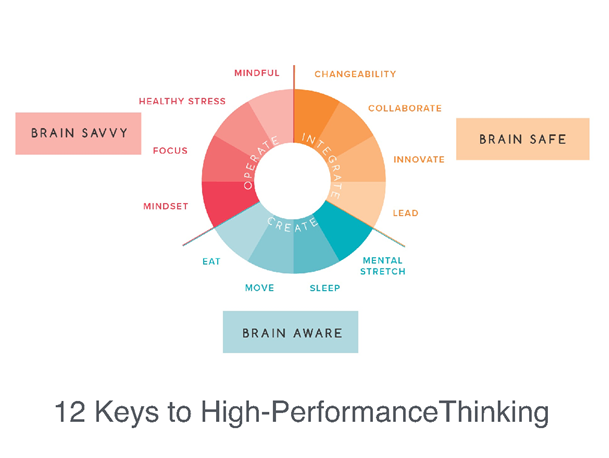Should you care about your brain health?
Is the Pope a Catholic?
Sorry if this sounds facetious, but I find it more than a touch frustrating when I hear this question being repeatedly asked as if this is something new, or perhaps a little weird, along with a hint of underlying scepticism that this is just the latest fad doing the rounds. Though perhaps I should be grateful that the question is being raised more often in the public forum.
What’s wrong with brain health? The underlying problem is really a lack of understanding, because what do we really mean when we talk about brain health and cognition?
Brains and minds, minds and brains, where does one start and the other one finish? Your brain is essentially the hardware, the electrical impulses and neurochemicals that enable the transmission and recording of information then used by the software of your mind to make better sense of our world through our thoughts, values, beliefs and biases.
The two are intertwined. Our thoughts shape our brain while our brain can change our mind. It’s a beautiful thing.
Your mental wellbeing reflects how you feel, and is influenced by a myriad of factors including stress, emotion, your relationships and general health.
Your cognitive wellbeing reflects how well your brain is working to enable you to think, understand, learn and remember.
The trifecta of physical, mental and cognitive wellbeing provides us with complete health.
Yet, when it comes to doing your job and knowing being able to think well is a must, how many businesses and organisations regularly check you are provided with the right environment, resources and support to ensure you are fit for work from a cognitive perspective?
In a world experiencing information overload, rapidly escalating stress and mental health issues, the employer who invests in the brain health and wellbeing of all their staff is the one who will be more than adequately recompensed because improved cognition benefits us all at an individual, collective and societal level.
Good work starts with better brain health because it is critical to better decision making, faster problem solving, greater resilience and adaptability to the rapidly changing work environment.
Your best work comes from being in that wonderful state of flow, that while seemingly too fleeting provides the intensity of focus, clarity of thought and insight to operate at your cognitive best.
Being “Fit for Task” reduces the risk for error or accident, mindless behaviour or lack of judgement. Safe Work Australia reports the current cost of workplace industry and accident as nearly $62 billion dollars a year. While human error is frequently cited as a major factor, this implies that those involved may have been suffering mental fatigue, high levels of stress or distraction leading to a lack of situational awareness.
Prioritising people management with a focus on individual health and happiness is not new.
The High Performance Workplaces Index published in 2011 revealed a clear distinction between those workplaces that focused on improving the capabilities and practices of managers along with involving people in decision making that led to higher levels of engagement and investment of discretionary effort and productivity compared to those that didn’t.
Brain health is everyone’s responsibility.
While you may be held accountable for your individual contribution, it’s best supported at an organisational level.
There are numerous health and wellness corporate packages that have demonstrated good results and a worthwhile ROI. The Towers Watson and the National Business Group revealed the cost savings of enhanced wellbeing and lower sick or stress leave costs alone equate to $1600 per employee, while a meta-analysis of 42 corporate wellness studies showed a 25% reduction in absenteeism and sick leave.
Better brain health incorporates three components: Brain Aware, Brain Savvy and Brain Safe

Being Brain Aware addresses those lifestyle factors as shown by the research to have a positive effect on productivity and performance, namely eat, move, sleep and stretching that mental muscle.
Being Brain Savvy is about checking in on current workplace practices to promote better thinking by adopting a positive mindset, focusing on what matters, using stress to your advantage and being more mindful across the day.
Thirdly, working in a brain safe environment promotes adaptability, contribution, innovation and leadership. As humans, we thrive when working with others we consider like us, who value what we do and to whom we feel connected.
How do I know if my brain is working normally?
That’s a good question to ask. Thankfully we now have the technology available to provide that ‘check-up from the neck-up’ as a snapshot of your cognitive function at the time of testing. It can be enormously reassuring to know your brain is working normally, especially following the trauma of illness, mental health problems, excess stress or injury.
That’s why a complete health assessment assesses lifestyle factors AND cognition, so you get to understand just how well your brain is working and discover your unique pathway higher mental performance as validated by the science.
Should you care about your brain health?
I think you now have the answer.
This article was originally published as a guest post for Jo Muirhead Rehabilitation Counsellor and Proprietor of Purple Co.


